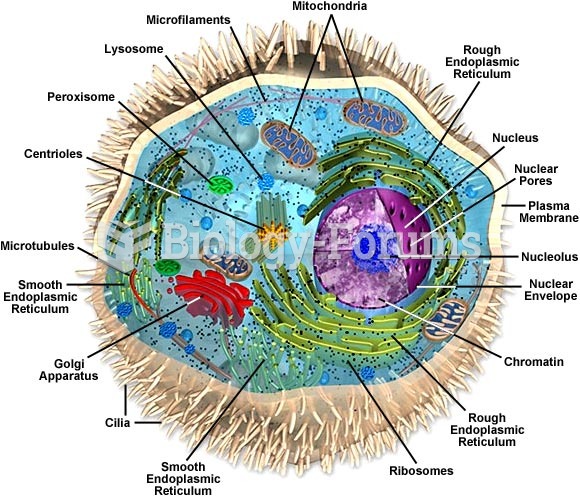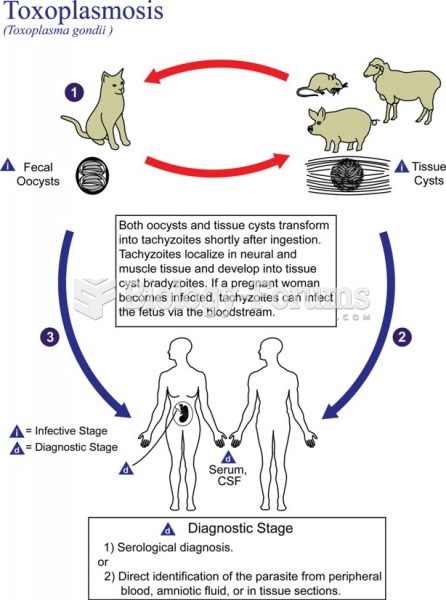Answer to Question 1
A
Feedback
A Correct. Overall, variations in the gastrointestinal system result in slower, more erratic absorption of orally administered drugs during the first 6 months of life.
B Incorrect. During the first 6 months of life, the infant's absorption of orally administered medications will not be about the same as later in life, but slower and more erratic.
C Incorrect. During the first 6 months of life, the infant's absorption of orally administered medications will not be somewhat faster, but slower and more erratic.
D Incorrect. During the first 6 months of life, the infant's absorption of orally administered medications will not be much faster, but slower and more erratic.
Answer to Question 2
C
Feedback
A Incorrect: Conduct disorder is a psychological disorder characterized by irresponsible, delinquent behaviors such as truancy and running away; violations of the rights of others, and overt physical aggression. Conduct disorder is acting out behavior; whereas, depressed and anxious individuals (homeless children) do not tend to display antisocial behavior.
B Incorrect: Oppositional defiant disorder (ODD) is characterized by hostile, negativistic, defiant, and disobedient attitudes and behaviors, especially toward authority figures.
C Correct: Psychological problems identified most often among homelesss children include anxiety, depresssion, poor attention span, trouble sleeping, delayed speech, shyness, withdrawl, and aggressive behaviors.
D Incorrect: Personality problems are manifested in behavior that deviates markedly from the expectations of one's culture. Difficulty with authority figures is a symptom of ODD.







